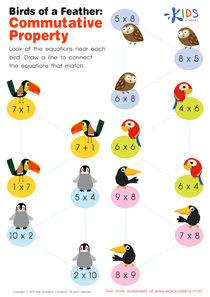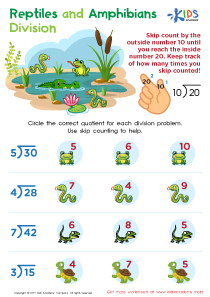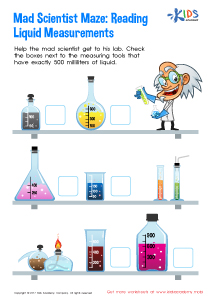Counting skills Normal Grade 3 Word Problems Worksheets
4 filtered results
-
From - To
Enhance your third grader's counting skills with our engaging and interactive word problems worksheets. Designed specifically for Grade 3, these worksheets provide a variety of scenarios that challenge students to apply their counting skills in real-life situations. Each problem encourages critical thinking and helps build confidence in mathematical reasoning. With clear instructions and colorful illustrations, these worksheets are perfect for both classroom and at-home learning. Ideal for reinforcing foundational math concepts, our counting skills worksheets allow learners to practice addition, subtraction, and number recognition in fun and meaningful ways. Boost your child's math proficiency and make learning enjoyable with these essential resources!
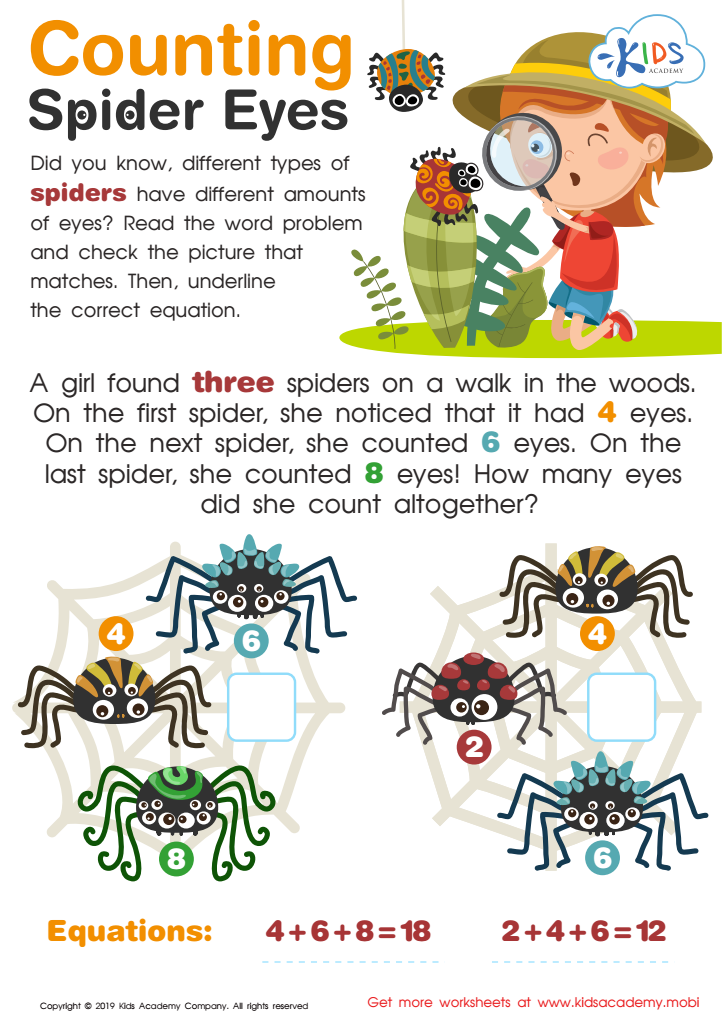

Counting Spider Eyes Worksheet


Adding Flower Petals Worksheet
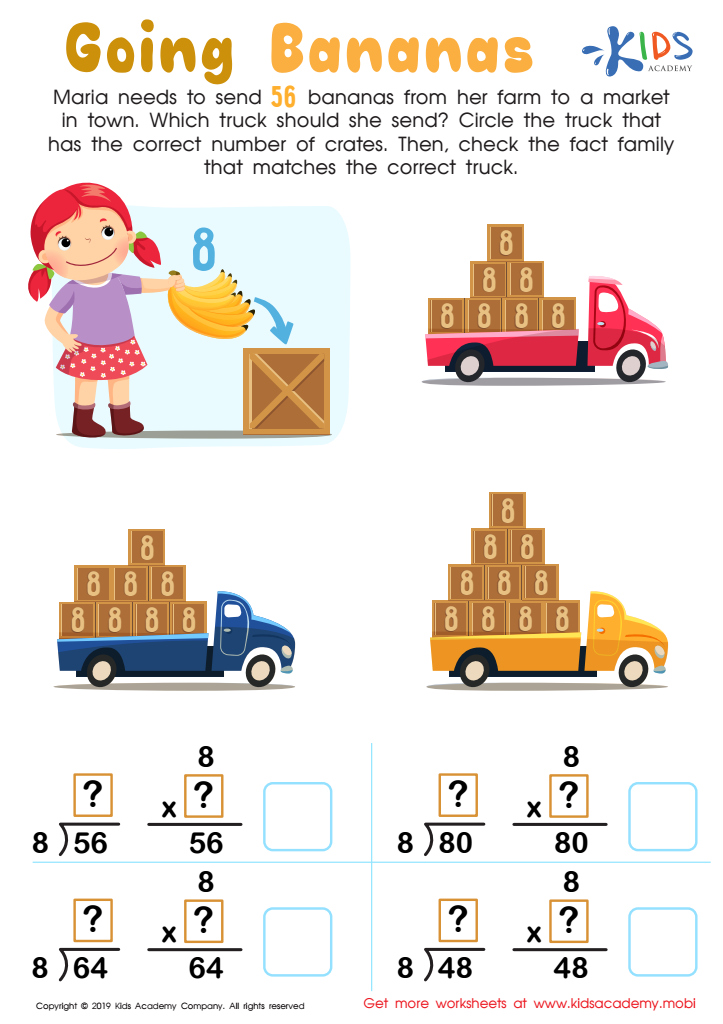

Going Bananas Worksheet
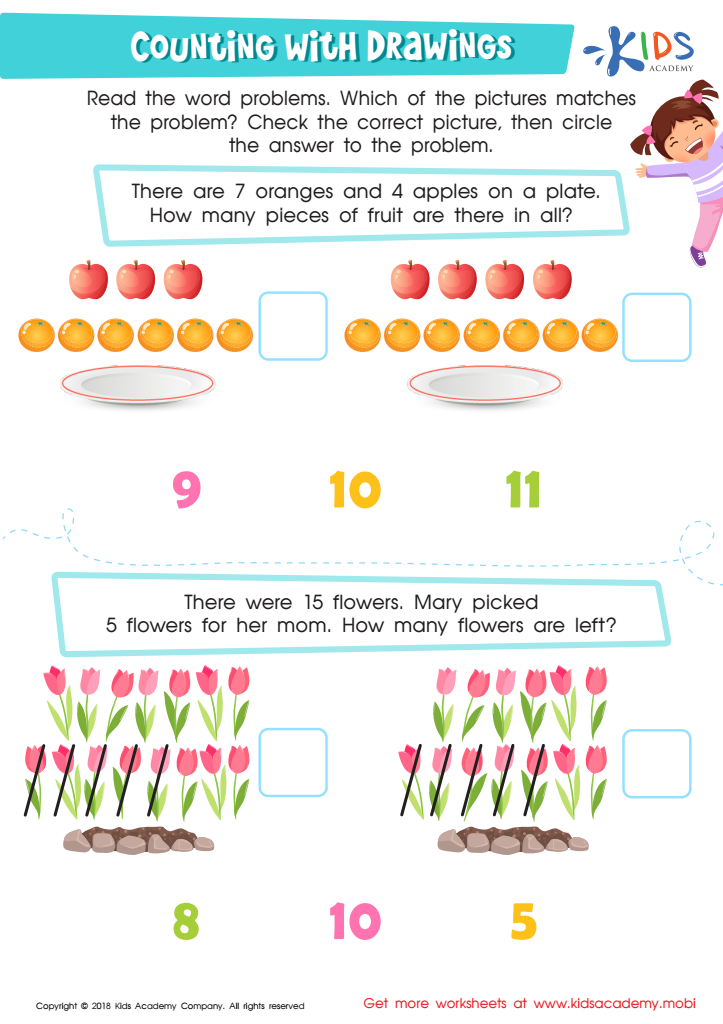

Counting with Drawings:Fruits & Flowers Worksheet
Counting skills play a fundamental role in a child's mathematical development, particularly by the end of Grade 3. At this stage, children are transitioning from simple counting to solving more complex word problems that require critical thinking and analytical skills. Parents and teachers should prioritize developing strong counting skills for several reasons.
Firstly, counting serves as the building block for more advanced mathematical concepts, including addition, subtraction, multiplication, and division. A solid understanding of counting helps students grasp these operations more quickly and effectively.
Secondly, word problems foster applied math skills, as they demand reading comprehension, logical reasoning, and the ability to translate a real-life scenario into a mathematical equation. This process not only strengthens mathematical skills but also enhances problem-solving abilities which are crucial in everyday life.
Furthermore, strong counting skills can increase a child's confidence in their math abilities, reducing math anxiety and encouraging a positive attitude towards learning. By fostering a deeper understanding of counting and application through word problems, we prepare children for future academic challenges, promote independent thinking, and help them appreciate the relevance of math in their lives and potential careers.
 Assign to My Students
Assign to My Students








